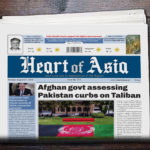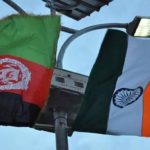The Ministry of Foreign Affairs on Sunday said it was assessing Pakistan’s order of imposing sanctions on Taliban leaders.
Foreign Ministry spokesman Gran Hiwad said in a statement that the Afghan government would clarify its position after an assessment in this regard.
Pakistan issued the order in ‘a statutory notification’ and placed it on the website of the Foreign Office in Islamabad late Friday.
It called for strict enforcement of assets freeze, travel ban and arms embargo on the Afghan militant movement.
Section 10 of the SRO explained the purpose of issuance of the new order, which said: “In exercise of the powers conferred by Section 2 of the United Nations’ (Security Council) Act, 1948, (XIV of 1948), the federal government is pleased to order that the Resolution 2255 (2015) be fully implemented with respect to Taliban leaders and affiliated entities…”
Gran said the MoFA would share its information with the media after completing its assessment.
Pakistan has ordered full compliance with the United Nations’ Security Council sanctions against Afghan Taliban and the Haqqani Network.
The Taliban have not yet commented in this regard.
Pakistan has issued sweeping financial sanctions against Afghanistan’s Taliban, just as the insurgent group is in the midst of the US-led peace process in the neighbouring country.
The orders, which were made public late on Friday, identified dozens of individuals, including the Taliban’s chief peace negotiator Abdul Ghani Baradar and several members of the Haqqani family, including Sirajuddin, the current head of the Haqqani network and deputy head of the Taliban.
The list of sanctioned groups included others besides the Taliban and were in keeping with a five-year-old United Nations resolution sanctioning the Afghan group and freezing their assets.
Pakistan trying to get off grey list
The orders were issued as part of Pakistan’s efforts to avoid being blacklisted by the Financial Action Task Force (FATF), which monitors money laundering and tracks terrorist groups’ activities, according to security officials who spoke on condition of anonymity because they were not authorised to speak to the media.
Last year the Paris-based group put Islamabad on a grey list.
Until now only Iran and North Korea are blacklisted, which severely restricts a country’s international borrowing capabilities.
Pakistan is trying to get off the grey list, said the officials.
There was no immediate response from the Afghan Taliban, but many of the group’s leaders are known to own businesses and property in Pakistan.













